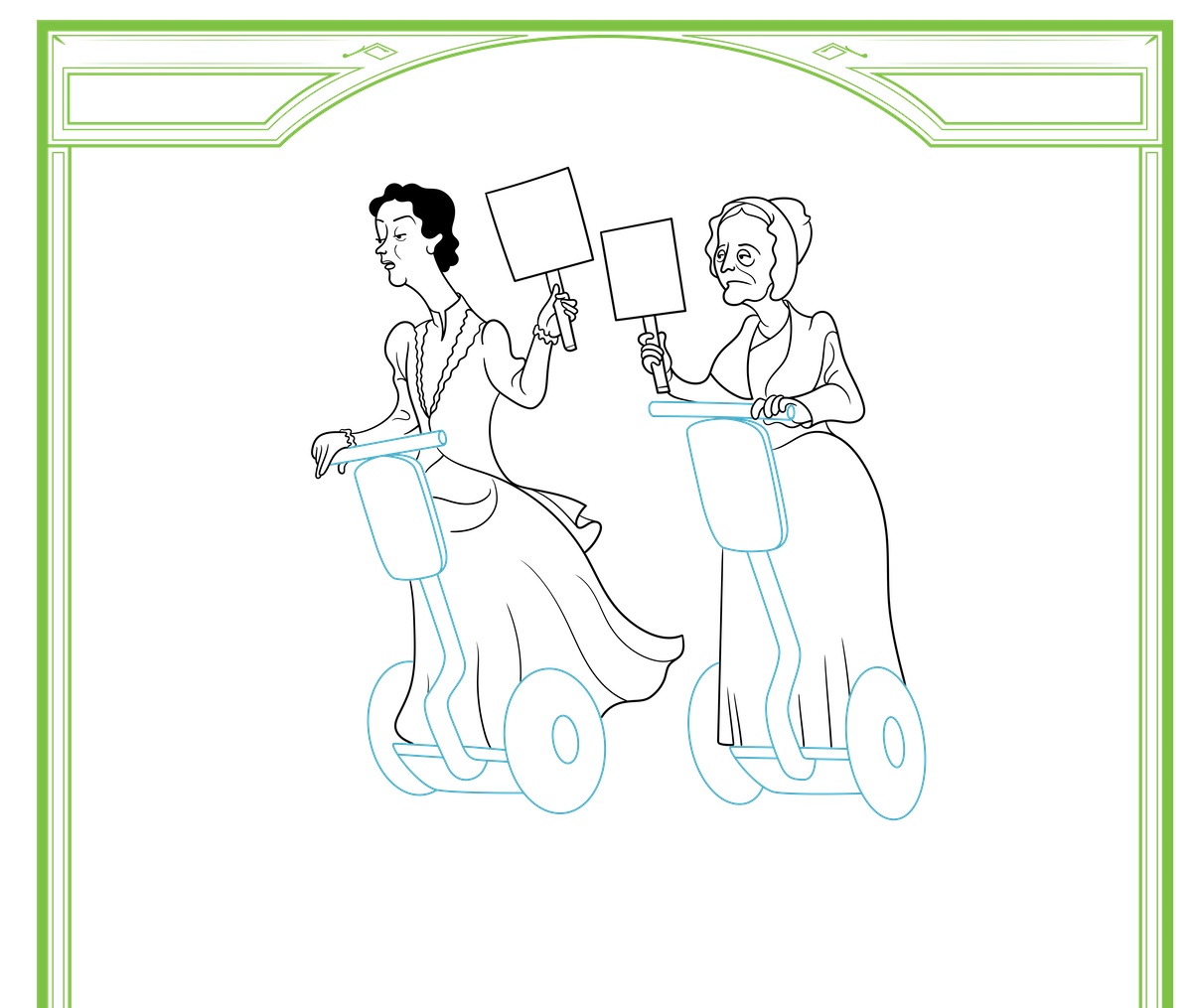The second stop on Technical.ly’s tour through Philadelphia’s innovation history is well timed, given the start of Women’s History Month and our own Gender Equity in Tech Month.
Last week we kicked off a 10-week series spotlighting innovators of Philly’s past and present ahead of Philly Tech Week 2020 presented by Comcast — happening this May 1 through 9 — by linking jazz musician John Coltrane with creative space REC Philly.
Next up, we make our way to Philly’s public access television and radio station, PhillyCAM, and take a look at two pioneering women of the 19th century: Margaretta Forten and Lucretia Mott (1806-1875 and 1793-1880).
These suffragettes and abolitionists were major players in the fight for equal voting rights. The former was an educator and cofounded the Philadelphia Female Anti-Slavery Society with 10 other women, including her mother and sisters; the latter was a traveling Quaker minister and co-organized the first women’s rights convention, the Seneca Falls Convention. (Forten was also the daughter of James Forten, another innovator on our list.)
Forten and Mott championed representation and equality for all, including through the written word, while PhillyCAM works to give representation to a variety of voices through media arts: The nonprofit’s mission is to be a leading advocate for discussing issues largely absent from public dialogue, including by hosting workshops to teach members of any skill level how to create independent, noncommercial media.
On Saturday, May 2, PhillyCAM, located at 7th and Ranstead streets, will serve as a PTW hub — a central location where multiple PTW events will take place throughout that day — and we’re happy to connect Forten and Mott as representations of its spirit. Look for signage about these historical figures on site all day.
PhillyCAM Executive Director Gretjen Clausing thinks PhillyCAM’s commitment to serving the entire city and making sure the station is reflective of what the city looks like connects well to Forten and Mott’s radical efforts for equal access and freedom for all.
“They were not only suffragettes but abolitionists,” Clausing said. “I think why PhillyCAM continues to be important is [because we] make sure there are a diversity of voices representing folks who have not had an opportunity to be heard.”

The org’s pillars are creative expression, civic engagement and democratic values.
“Here [at PhillyCAM] it’s [about] freedom to speak and be seen and have access to the same platforms and tools that anybody would have,” she said. “What our work here hopes to do is convey more information about a side of a story that may be lesser known.”
PhillyCAM has also supported local voter registration and is currently working on information campaigns about the upcoming census, “working directly with communities that are potentially at higher risk” of not being counted, Clausing said. The org received a grant from the Digital Literacy Alliance in November for creating a Census2020 Media Toolkit with language-specific media pieces that can encourage people to participate.
Clausing hopes Forten and Mott would see PhillyCAM as a valuable resource for community organizing work if they were alive now.
“I could imagine them with a talk show on WPPM,” she said. “They could be guests on our ‘People Power Lunch Hour.'”
PhillyCAM is working on a few other new projects. It recently received approval to host a pilot pre-apprenticeship program in media arts with The Alliance for Media Arts and Culture. The program starts this summer and will teach youth editing, writing and producing skills to prepare for a future apprenticeship with a Philly-based media organization. PhillyCAM will also be partnering with Doc Society for a second edition of Good Pitch Local Philadelphia, a one-day program that supports non-fiction projects and community filmmakers.
Visit the hub during PTW20 to see what else the org has in the works.







